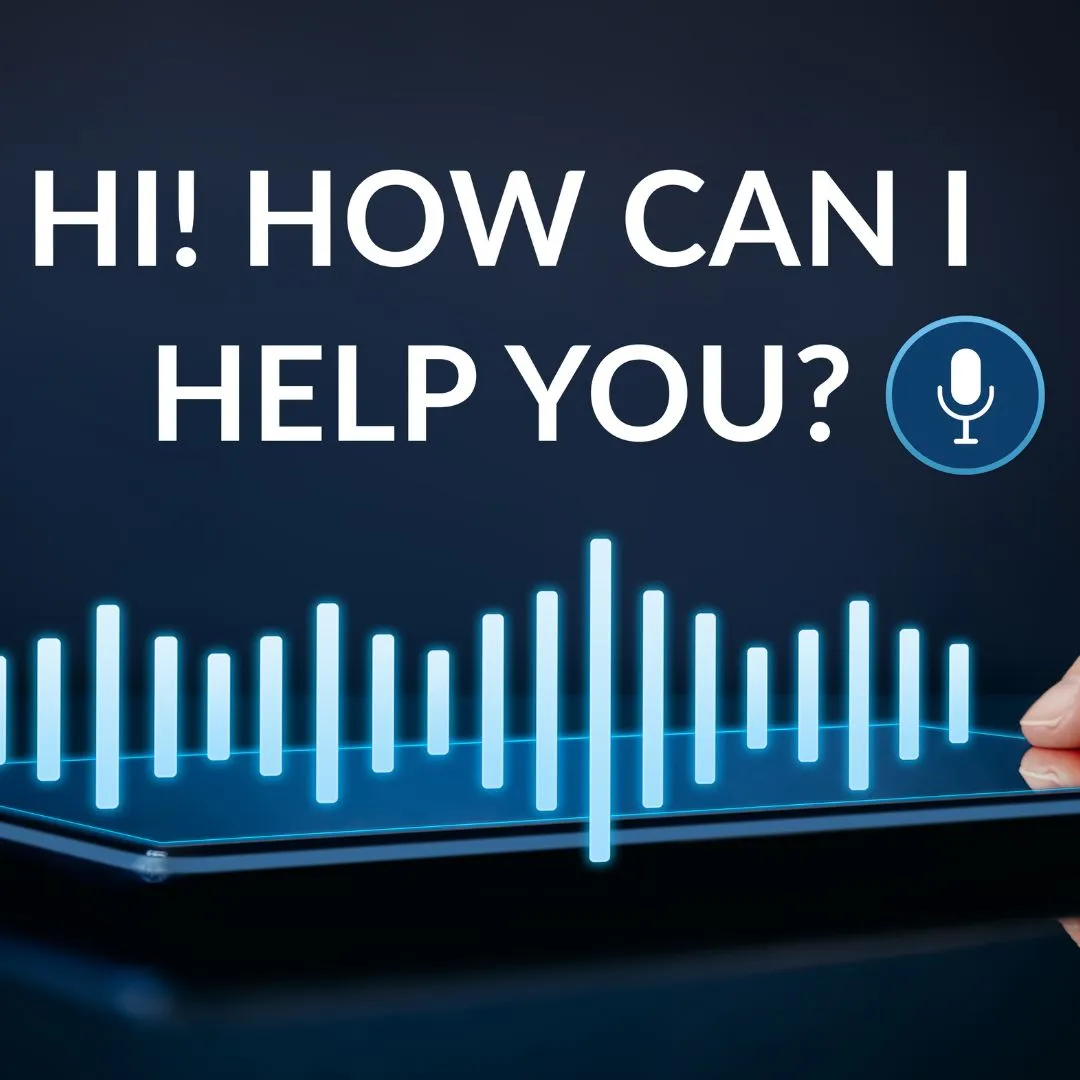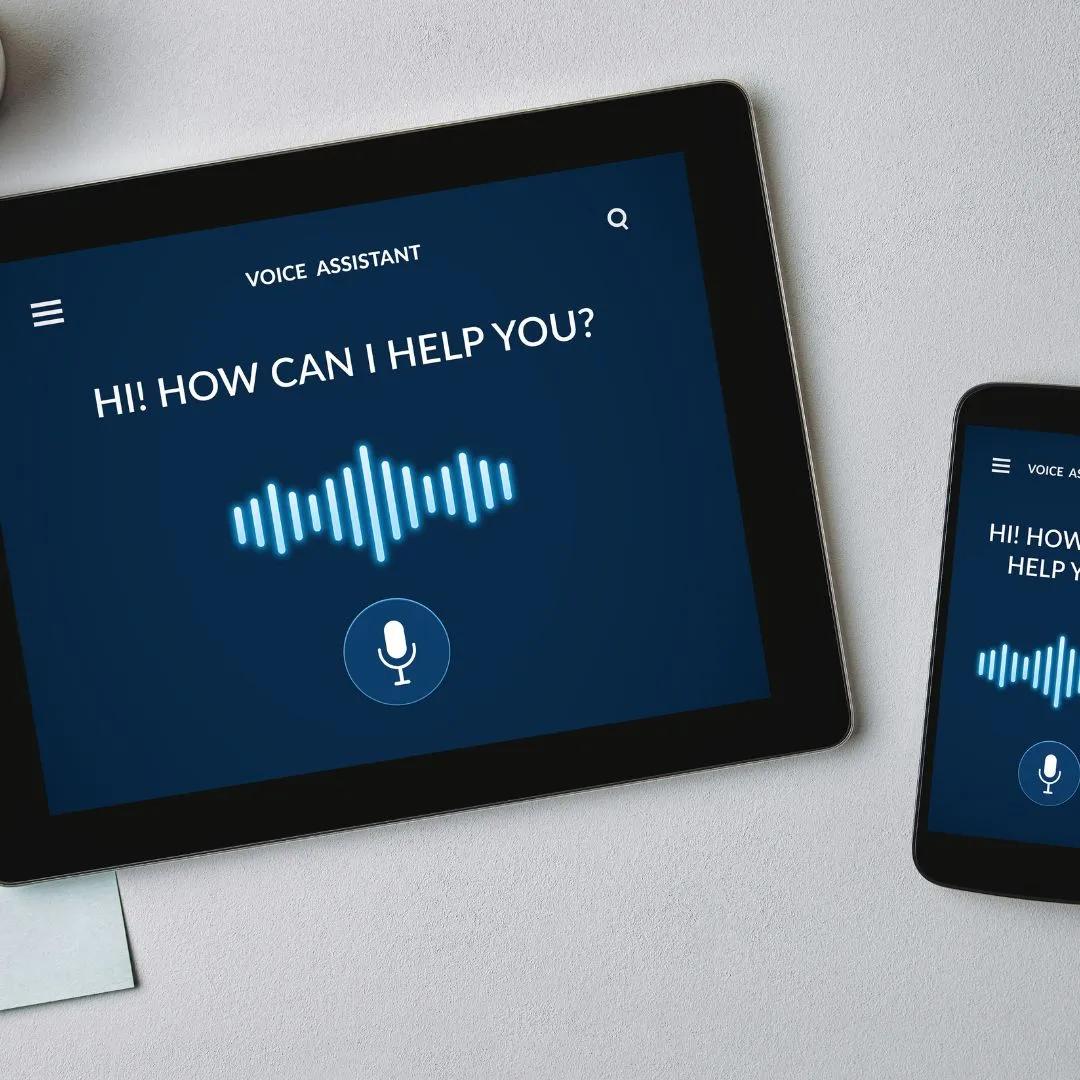AI Voice Agents The Future of Interaction

AI voice agents are reshaping the way we interact with technology, offering seamless, intuitive, and personalized experiences across industries. From customer service to education and beyond, these intelligent assistants are becoming indispensable. This blog delves into the power of AI voice agents, their future potential, and the essential steps to develop one, paving the way for a smarter, more connected world.
Quote: "AI voice agents are not just tools; they are transforming how we interact with technology by making services accessible, efficient, and user-friendly."
The Power of AI Voice Agents
AI voice agents are intelligent systems that use advanced artificial intelligence to process spoken language, understand intent, and deliver natural responses.
Unlike traditional chatbots, they offer hands-free, conversational interactions, making them ideal for multitasking, accessibility, and real-time engagement. With capabilities like those seen in advanced systems, such as scheduling tasks, answering queries, and automating workflows, AI voice agents enhance efficiency and user satisfaction across sectors like retail, education, and customer support.

Key Features Driving Transformation
AI voice agents are packed with features that make them versatile and powerful:
Task Automation: Handle routine tasks like scheduling, order tracking, or inquiry resolution with simple voice commands, integrating seamlessly with existing systems.
Instant Information Access: Provide accurate answers to user questions, from product details to educational content, using verified knowledge bases.
Proactive Engagement: Automate reminders, follow-ups, and surveys to maintain user engagement and improve service delivery.
Personalized Interactions: Tailor responses based on user data, delivering empathetic and context-aware conversations that build trust.
Scalable Support: Offer 24/7 assistance, scaling instantly to meet demand without additional resources.
These features make AI voice agents a game-changer, streamlining operations and enhancing user experiences across industries.
Benefits Across Industries
For users, AI voice agents provide unparalleled convenience, enabling 24/7 access to services and information, reducing wait times, and offering personalized support. In businesses, they reduce operational costs by automating repetitive tasks, improve employee productivity, and provide data insights for better decision-making. From retail stores managing customer inquiries to educational platforms offering interactive learning, AI voice agents are versatile tools driving efficiency and engagement.
The Future of AI Voice Agents
The future of AI voice agents is bright, with advancements in natural language processing, emotional intelligence, and multi-modal interactions (combining voice, text, and visuals). Expect voice agents to become more context-aware, capable of handling complex tasks, and integrated with IoT devices for smart homes and workplaces. Enhanced multilingual support and accessibility features will make them inclusive, while ethical AI development will ensure trust and fairness. As these agents evolve, they’ll redefine human-technology interactions, making them more intuitive and seamless.
Steps to Create an AI-Based Voice Agent
Building a robust AI voice agent requires careful planning and execution. Here are the key steps:
1. Define Your Goal: Decide what your voice agent will do (e.g., handle calls, book appointments, answer FAQs).
2. Understand User Needs: Identify common user queries and frustrations to shape your agent’s functionality.
3. Plan Conversation Flows: Sketch clear, friendly conversation paths, including greetings, confirmations, and handling unclear inputs.
4. Choose the Right Tools: Use beginner-friendly platforms like Twilio Studio for call handling, Google Dialogflow or Amazon Lex for voice AI, and Zapier for simple integrations.
5. Select AI Technologies: Use Automatic Speech Recognition (ASR) for speech-to-text, Natural Language Understanding (NLU) for intent recognition, Dialogue Management (DM) for conversation flow, and Text-to-Speech (TTS) for natural responses.
6. Connect to Systems: Plan how your agent will link with calendars or EMRs for booking and patient information (start with Google Calendar or basic scheduling APIs).
7. Focus on Simple Language: Write clear, empathetic scripts for your agent to sound human-like and reassuring.
8. Test with Real Scenarios: Simulate patient calls to refine the experience and adjust flows as needed.
9. Ensure Privacy and Consent: Use secure data handling, gain patient consent, and check HIPAA/GDPR basics if handling sensitive data.
10. Plan for Human Escalation: Ensure the agent can transfer calls to staff when it cannot resolve a query.
11. Start Small, Then Expand: Launch with simple tasks, learn from user feedback, and gradually add advanced features.
Ethical Considerations in AI Voice Agent Development
Ethical development is crucial for AI voice agents. Mitigating bias through diverse training data ensures fairness across user demographics. Transparency, achieved via explainable AI, builds trust by clarifying how responses are generated. Robust security measures, like end-to-end encryption and strict data retention policies, protect user privacy. Continuous audits and collaboration with ethicists ensure accountability, making AI voice agents reliable and trustworthy tools.
Ready to explore AI voice agents? Contact us to see how iSeva AI can enhance your user engagement while reducing administrative workload.
Request a Demo | Contact Sales
Join the revolution of AI voice agents and shape a smarter, more connected future today!


